Our Voices on the Integration of Psychology & Theology
Story Table: Integration
+ The Story Table takes a theme from FULLER magazine and brings it to life at everyone’s favorite conversation place—the dinner table. People who embody the theme in unique ways tell their stories around the table, and members of the community are invited to listen in. The third Story Table focused on integration, and you can read their stories about the integration of psychology and theology here.
Theological Reflection on Integration
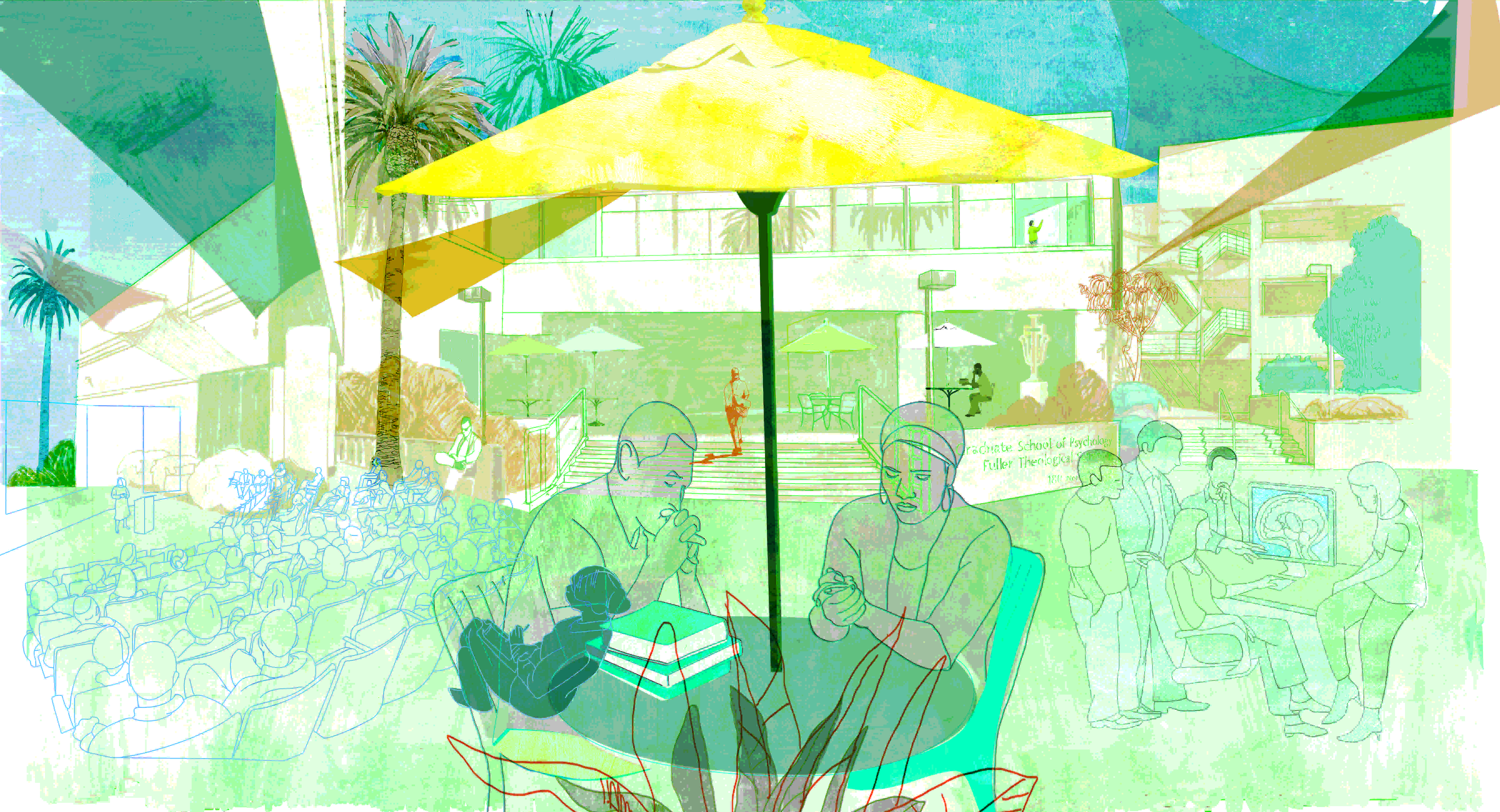
+ The nexus where theology and psychology integrate is more than a philosophical juncture, it is a place where people meet. The bricks and mortar of Fuller’s C. Davis and Annette Weyerhaeuser School of Psychology complex serve the people engaged in those meetings. There, people gather for therapy, classes, lectures, informal dialogue, research, study sessions, prayer, and conversation. A host of resources makes this possible, including grants totaling nearly $5 million managed by Fuller’s Thrive Center. These grants enable research on topics as diverse as virtue development, spiritual formation, psychology of religion in Chinese society, and academic and social emotional functioning in ethnic minority youth. This robust activity is evidence of the widespread application of a commitment to integration between theology and psychology at Fuller. The following material comes from the theological articles in FULLER: Integration of Psychology and Theology, the fifth issue of the magazine available here.
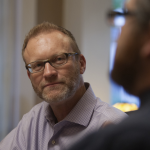 “A Christian integrator is someone who is working on his or her own integrative journey of faith. Christian integrators will take personal responsibility to thoroughly engage their particular faith traditions and practices in holistic ways that bring about theological and psychological formation. . . . They are embodied and embedded, in that they pray, read Scripture, and serve the needs of the neighbor with other believers in the body of Christ. This is the only way to bring integration from intellectual contemplation into day-to-day living. In this way we will be better equipped to know what we are integrating, with what, and with whom.”
“A Christian integrator is someone who is working on his or her own integrative journey of faith. Christian integrators will take personal responsibility to thoroughly engage their particular faith traditions and practices in holistic ways that bring about theological and psychological formation. . . . They are embodied and embedded, in that they pray, read Scripture, and serve the needs of the neighbor with other believers in the body of Christ. This is the only way to bring integration from intellectual contemplation into day-to-day living. In this way we will be better equipped to know what we are integrating, with what, and with whom.”
+ Brad Strawn, the Evelyn and Frank Freed Professor of the Integration of Psychology and Theology and Chair of Integration, Department of Clinical Psychology, in Fuller’s School of Psychology, from his introductory article of the magazine
“Just as Christ calls us to be in union with him, the church can only be built through unity. Our brokenness at the individual, family, and social levels can be healed and brought to wholeness if we prioritize community building and consciously resist divisiveness. Whether individualistic or collectivistic, unless self-serving human tendencies are regenerated in Christ, churches cannot function as the loving community of God that seeks to be salt and light in a broken world.”
+ Jenny Pak, Kevin Wang, Alvin Dueck from their article on the challenges of cross-cultural integration
“When the Spirit is involved in Christian counseling, we can expect that the therapist will evidence such fruit toward his or her clients and that the outcome of the therapy will be a person who is more and more exhibiting Christlike fruit. Shorthand for the Spirit’s fruit is agape, or Christlike love. The Spirit’s fruit of agape is powerful in Christian counseling!”
+ Siang-Yang Tan from an interview on therapy and the Holy Spirit.
“Shalom cannot be attained by addressing only one aspect of our lives or work but rather requires a dynamic understanding of our relationships. Realistically, even when we desire to embody a reciprocal transformative model of ministry, there may be seasons in which we are overextended. However, attending to the warning signs of these seasons of stress allows ministry workers to create time for continued refinement and transformation. Facing burnout remains an opportunity to grow in understanding more about ourselves as well as others.”
+ Cynthia Eriksson, Jude Tiersma Watson, and Ashley Wilkins from their article researching the causes and effects of burnout.
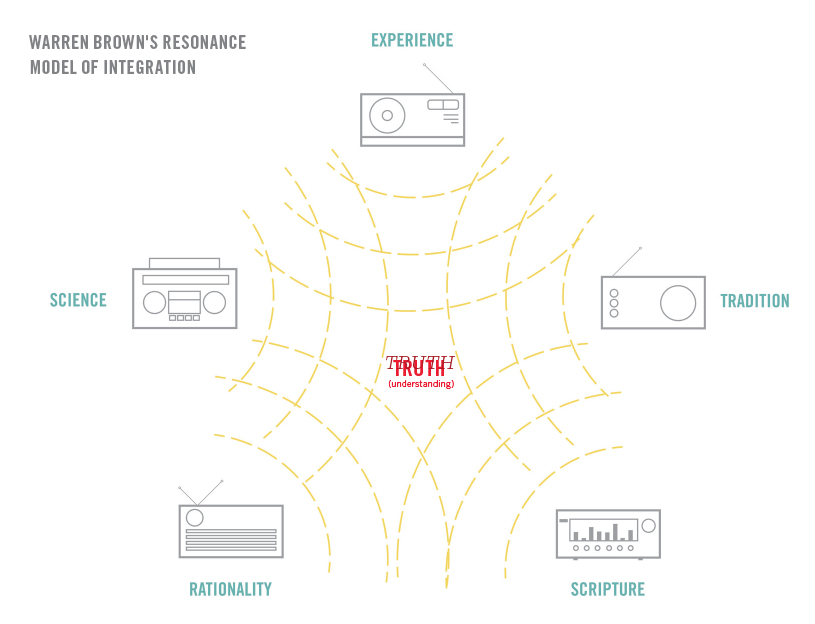 “To say we are embodied is to move away from the Cartesian idea of a disembodied soul as the source of our religiousness and spirituality, and toward the idea of humankind as nested in God’s physical creation. We were created by God as beings inescapably implicated with the physical and biological world. . . . All of our capacities participate in our religious selves, and which capacities participate depends on which of the great variety of religious contexts that engages us at the moment.”
“To say we are embodied is to move away from the Cartesian idea of a disembodied soul as the source of our religiousness and spirituality, and toward the idea of humankind as nested in God’s physical creation. We were created by God as beings inescapably implicated with the physical and biological world. . . . All of our capacities participate in our religious selves, and which capacities participate depends on which of the great variety of religious contexts that engages us at the moment.”
+ Warren Brown, director of the Lee Edward Travis Research Institute and professor of psychology, from his article embodied cognition. Hear his recent lecture on neuroscience and conceptions of the soul here. Dr. Brown’s resonance model of integration (pictured) suggests that truth comes into focus when diverse domains of knowledge resonate together. For more on this model, see Dr. Brad Strawn’s article.
“Beyond mere intellectual interest, therefore, one of the motivations for integration is the sense that one’s personal integrity is at stake: Is there any conflict between being a Christian and being a psychotherapist? The question isn’t unique to the practice of therapy; many Christians experience some degree of compartmentalization of faith and work, confession and profession. But therapists, who are intimately involved in helping people correct the course of their lives, may feel the question more keenly. . . . What’s needed is a coherent narrative framework capable of holding together a developing sense of vocation as Christians and as therapists.”
+ Cameron Lee, professor of marriage and family therapy, on clinical virtues and a scriptural framework for therapy, available here.
50 Years of Integration at the School of Psychology
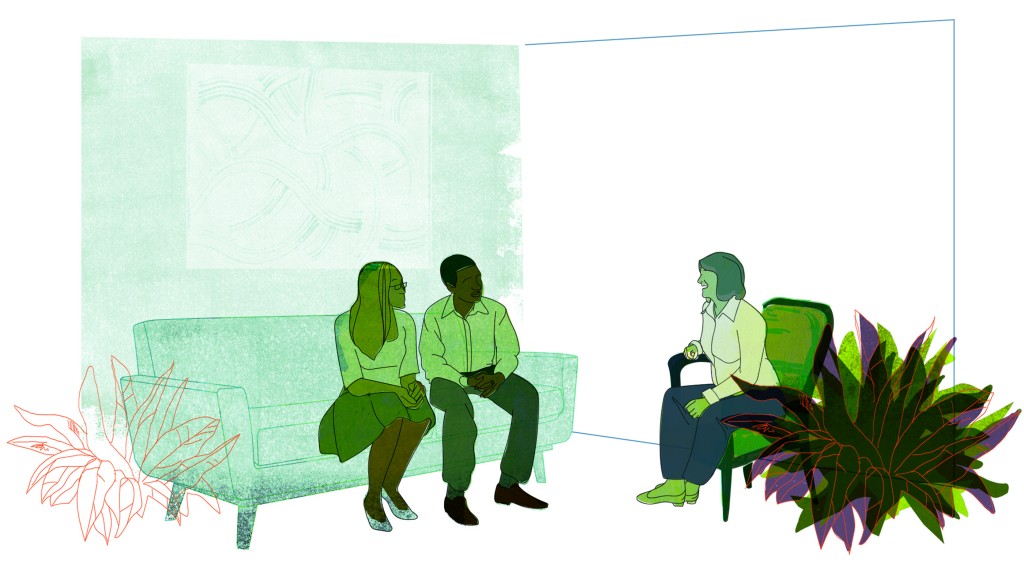
+ The following quotes are taken from events during the School of Psychology’s 50th anniversary, a celebration of the history of integration at the school. Learn more about the celebration here.
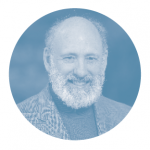
“If we were to take Jesus more seriously, we would take the body of Christ more seriously. We need to learn it is in the body of Christ that we are formed, and that character formation shapes the way in which we are therapists, researchers, and educators. . . . It is such a temptation professionally to move beyond the provincial church into the rarified air of our own professionalism. I think we have a profound responsibility as followers of Christ to take care of the body of Christ.”
+ Alvin Dueck is the Distinguished Professor of Cultural Psychologies in the School of Psychology. This quote is taken from the “Seasons of the School of Psychology” panel during the 50th anniversary.
 “Spirituality is something that radically changes lives, that changes the way we understand ourselves and the way we are in this world. Here in the School of Psychology that’s something that the faculty are very committed to doing: enabling our students to have an educational experience that is transformative to who they are as people, that shapes them and forms them, and that propels them to go out and serve in this world.”
“Spirituality is something that radically changes lives, that changes the way we understand ourselves and the way we are in this world. Here in the School of Psychology that’s something that the faculty are very committed to doing: enabling our students to have an educational experience that is transformative to who they are as people, that shapes them and forms them, and that propels them to go out and serve in this world.”
+ Pamela Ebstyne King is the Peter L. Benson Associate Professor of Applied Developmental Science. This quote is taken from the “Seasons of Integration” panel during the 50th anniversary.
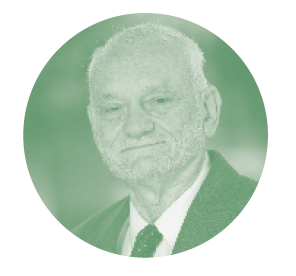 “When I gave the integration lectures years ago, the title was the somewhat dated term ‘the Nature of Man.’ I argued that it wasn’t the nature of man; it’s the nature of people. There’s no such thing as a person alone. . . . It is indeed the life of the church where Jesus is expressed; that’s where we’re corrected through comments other people make, sermons and the like, and that’s really a place where we need to grow.”
“When I gave the integration lectures years ago, the title was the somewhat dated term ‘the Nature of Man.’ I argued that it wasn’t the nature of man; it’s the nature of people. There’s no such thing as a person alone. . . . It is indeed the life of the church where Jesus is expressed; that’s where we’re corrected through comments other people make, sermons and the like, and that’s really a place where we need to grow.”
+ Richard Gorsuch was a senior professor of psychology at Fuller’s School of Psychology. This quote is taken from the “Seasons of Integration” panel during the 50th anniversary.
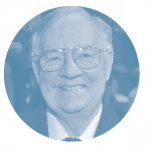 “My latest work is dealing with the growing pathologies related to digital overuse. . . . I’m working with universities with students who are potential digital addicts in the lives that they live. Our programs really need to pay attention to the digital pathologies that are emerging, because they are not going to go away, and we’re facing severe pathologies in the future.”
“My latest work is dealing with the growing pathologies related to digital overuse. . . . I’m working with universities with students who are potential digital addicts in the lives that they live. Our programs really need to pay attention to the digital pathologies that are emerging, because they are not going to go away, and we’re facing severe pathologies in the future.”
+ Archibald Hart was the third dean of Fuller’s School of Psychology and currently a senior professor of psychology. This quote is taken from the “Seasons of the School of Psychology” panel during the 50th anniversary.
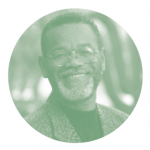 “Fuller has made this huge contribution as a school of psychology, yet our greatest contribution to the church . . . is to bring a healing presence to individuals, to children, and to couples in the name of our Lord in all the Christian communities that our graduates serve.”
“Fuller has made this huge contribution as a school of psychology, yet our greatest contribution to the church . . . is to bring a healing presence to individuals, to children, and to couples in the name of our Lord in all the Christian communities that our graduates serve.”
+ Winston Gooden is dean emeritus of Fuller’s School of Psychology and Evelyn and Frank Freed Professor Emeritus of Psychotherapy and Spirituality. This quote is taken from the “Seasons of Integration” panel during the 50th anniversary.
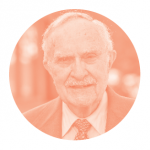 “We used to talk about the 50-minute hour, but what is the use of that 10 minutes? That 10 minutes before the Christian therapist might be thought of as a time you lift up to God this person you’re going to be dealing with and that you also lift up yourself. . . . The issue is spirituality: every minute you have—whether it’s at a stoplight or for 10 minutes before the next therapy session, we must be open to the Holy Spirit—that’s what the Spirit is there for!”
“We used to talk about the 50-minute hour, but what is the use of that 10 minutes? That 10 minutes before the Christian therapist might be thought of as a time you lift up to God this person you’re going to be dealing with and that you also lift up yourself. . . . The issue is spirituality: every minute you have—whether it’s at a stoplight or for 10 minutes before the next therapy session, we must be open to the Holy Spirit—that’s what the Spirit is there for!”
+ H. Newton Malony is professor emeritus of psychology in Fuller’s School of Psychology. This quote is taken from the “Seasons of Integration” panel during the 50th anniversary.
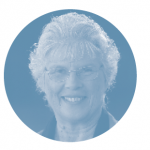 “A part of our role is this beautiful intimacy when people share their lives with you in that very sacred place where, because you’ve given them that faithful, unconditional love and empowerment, now they can share their hearts and their secrets at a level of knowing and being known at the very core of their being. That is a sacred privilege for therapists. . . . We’re on our knees before God here.”
“A part of our role is this beautiful intimacy when people share their lives with you in that very sacred place where, because you’ve given them that faithful, unconditional love and empowerment, now they can share their hearts and their secrets at a level of knowing and being known at the very core of their being. That is a sacred privilege for therapists. . . . We’re on our knees before God here.”
+ Judy Balswick is a senior professor of marital and family therapy. This quote is taken from the “Seasons of Integration” panel during the 50th anniversary.
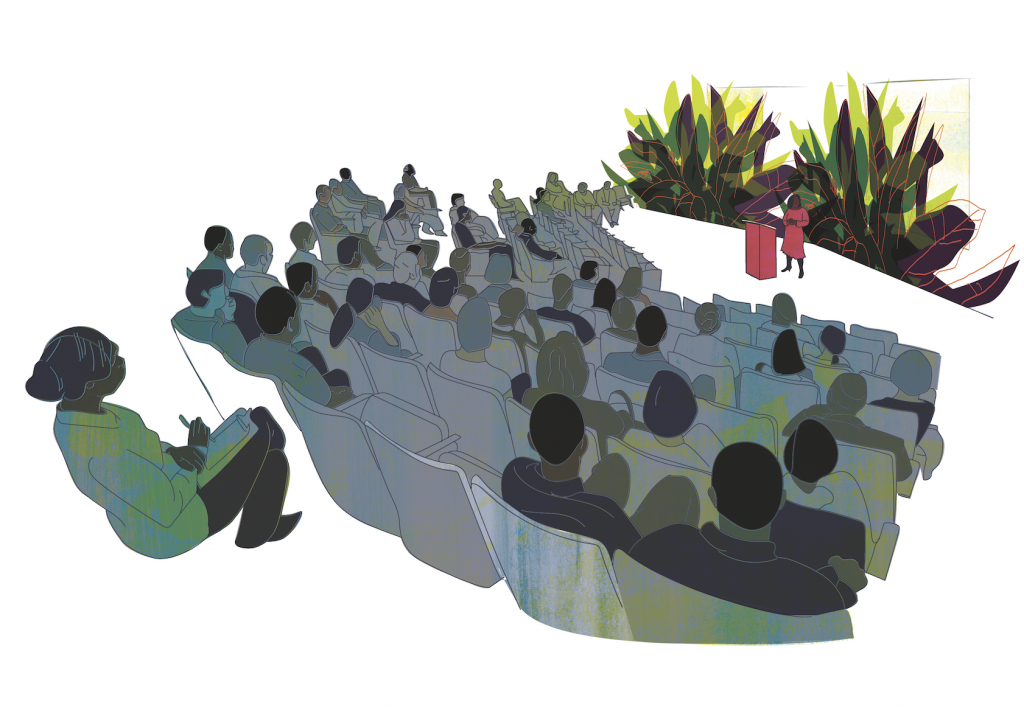
+ The Integration Symposium is an annual lectureship hosted every February by the School of Psychology, featuring national scholars focusing on a single integrative issue including topics from aging and dementia to what evangelicals can learn from Jung. The symposium is an academic gathering place in which integration can be tackled on an intellectual level, and it incorporates participants and panel respondents from all three schools of the seminary. The following are introductory lectures from the event, and you canlearn more about previous Integration Symposiums here.
“Attending to mental events shape mental experience. . . .There’s something about attending to inner sensations that gives God more experiential heft for the person experiencing it. It’s as if the sensory moment bleeds out into the world.”
+ Dr. Tanya Luhrmann in “Kindling God: How People Experience the Divine,” a series of lectures reflecting on a sociology of prayer.
“This conflict occurs along cognitive (thoughts and perceptions, including theology), emotional (feelings and personal experience), and behavioral (actions and politics) dimensions. . . . Sexuality calls forth deep and basic questions of faith, what is Christianity—a moral system, a religious organization, a way of life, or something else? If it’s all about a relationship with Jesus, then what do we do with these buildings, finances, payrolls, and meetings? Do we serve our best understanding of God’s will, or God’s will itself? How can we know what is good, true, and right? What is the meaning and value of the Bible, the church, a pastor, a congregation?”
+ Dr. Jenell Williams Paris in “Courageous Leadership in Christian Sex/Gender Conflicts,” a series of lectures reflecting on a complex social conflicts around sexuality.
 “In the courtyard of the building where I teach is a bronze sculpture of a Greek psi combined with a Christian cross. A plaque nearby reads, ‘Planting the cross in the heart of psychology.’ From its beginnings in 1964, the School of Psychology at Fuller has been about this endeavor known as ‘integration.’ While a number of different integration models have been developed within or alongside Fuller, the enduring central commitment of our work has been to bring the best of Christian theology (faith and practice) into honest conversation with the best of psychology (science and practice).”
“In the courtyard of the building where I teach is a bronze sculpture of a Greek psi combined with a Christian cross. A plaque nearby reads, ‘Planting the cross in the heart of psychology.’ From its beginnings in 1964, the School of Psychology at Fuller has been about this endeavor known as ‘integration.’ While a number of different integration models have been developed within or alongside Fuller, the enduring central commitment of our work has been to bring the best of Christian theology (faith and practice) into honest conversation with the best of psychology (science and practice).”
+ Brad Strawn, in his introduction to the theology section in the FULLER: Integration. Find all the articles from this issue of the magazine here, and you can learn more about integration at the School of Psychology here.
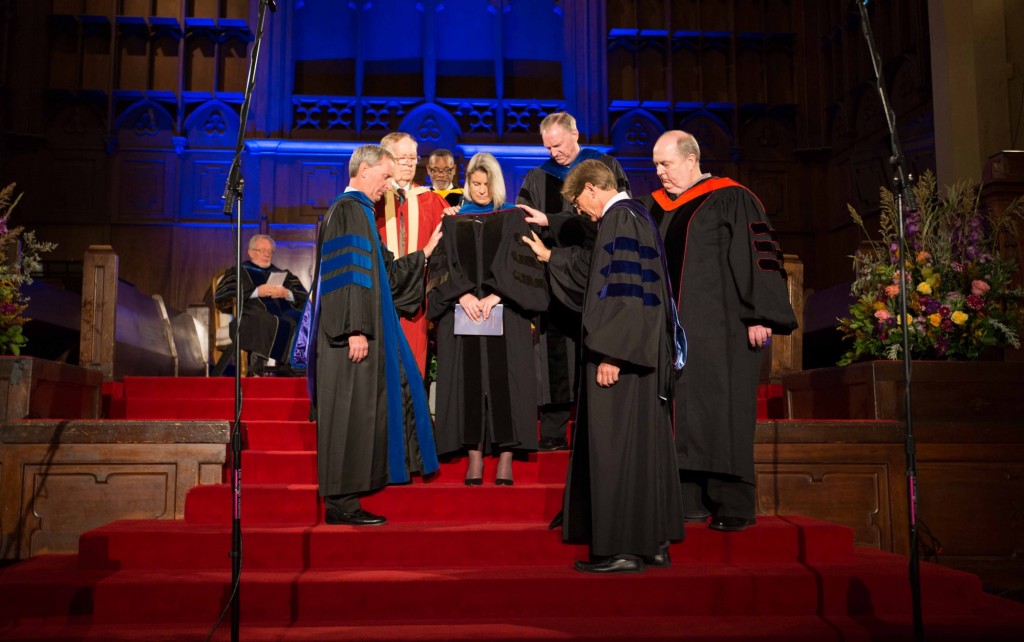
“When we fail to acknowledge our interdependence . . . we fail to serve the purposes of God optimally. We may do so out of pride, believing our own efforts to be sufficient, or out of self-reliance, believing our own efforts should be sufficient, or out of shame, believing ourselves undeserving of assistance. But when we insist on acting independently, we can thwart the opportunities of others to contribute as God made them to contribute. These contributions from others can be complicated, frustrating, and wonderful, but even when more the former than the latter, interdependence enriches both the self and the other. God made us for relationship and community.”
+ Mari Clements, dean of the School of Psychology, in her 2014 Baccalaureate address
+ Jim Furrow, distinguished chair and program director of the School of Psychology’s Department of Marriage and Family, participated in Fuller’s very first “Last Lecture” on Thursday, January 21, in Travis Auditorium at Fuller’s Pasadena campus. He shares his insights from his career in the field of marriage and family therapy and his research on couples therapy, interpersonal relationships, and positive youth development.
Further Reading
Worship that Changes Lives: Multidisciplinary and Congregational Perspectives on Spiritual Transformation
Alexis Abernethy, ed (Baker Academic, 2008).
Christian Counseling: An Introduction
David Augsburger and Newt Malony (Abingdon Press, 2007)
The Reciprocating Self: Human Development in Theological Perspective
Jack Balswick, Pamela Ebstyne King, and Kevin Reimer (IVP Academic, 2005)
Authentic Human Sexuality: An Integrated Christian Approach
Jack and Judy Balswick (IVP Academic, 2008)
Cognitive Science, Religion, and Theology: From Human Minds to Divine Minds
Justin Barrett (Templeton Press, 2011)
Born Believers: The Science of Children’s Religious Belief
Justin Barrett (Atria Books, 2012)
Christianity & Psychoanalysis: A New Conversation
Earl Bland and Brad Strawn, eds (IVP Academic 2016)
The Physical Nature of Christian Life: Neuroscience, Psychology, and the Church
Warren Brown and Brad Strawn (Cambridge University Press, 2012)
Neuroscience, Psychology, and Religion: Illusions, Delusions, and Realities about Human Nature
Warren Brown and Malcolm Jeeves (Templeton Press, 2009)
Between Jerusalem and Athens: Ethical Perspectives on Culture, Religion, and Psychotherapy
Al Dueck (Baker, 1995)
Integrating Psychology & Theology: Research and Reflections
Al Dueck, ed (Fuller Seminary Press, 2006)
Why Psychology Needs Theology: A Radical-Reformation Perspective
Al Dueck and Cameron Lee (Eerdmans, 2005).
Integrating Psychology and Spirituality?
Richard Gorsuch (Fuller Seminary Press, 2007)
Counseling and Psychotherapy: A Christian Perspective
Siang-Yang Tan (Baker Academic, 2011)
Available Classes
Introduction to Integration – Brad Strawn, Cameron Lee, Siang-Yang Tan
Advanced Integration Seminar – Brad Strawn, Cameron Lee
The Spiritual Life of the Psychotherapist and Clinical Applications – Gary Moon
Theological and Clinical Exploration of Shame and Guilt – JM Strength
Cultural and Spiritual Narrative in Psychotherapy – Jenny Pak
Psychology of Religion – Justin Barrett
Trauma and Faith – Cynthia Eriksson
Foundations of Christian Therapy – Siang-Yang Tan
Touchstones in Psychology and Theology – Brad Strawn
Clinical Integration Colloquium – Brad Strawn
+ Sign up for next year’s Integration Symposium here
The post Integration appeared first on Fuller Studio.